Chapter 7 – Corrective Colour
7.2 Tint Back
A tint-back service is the process of returning pre-lightened hair to a darker shade with the help of a filler. A tint-back process is necessary when the hair is being coloured three or more levels darker or when the pre-lightened hair requires a filler to correct an unwanted blue or violet muddy tone.
Filler
A filler is used to:
- Equalize the porosity of prelightened hair.
- Replace the missing underlying pigment that was removed during the lightening process.
There are two types of fillers. One is applied and fully processed prior to the target colour application and can be either non-oxidative or oxidative, depending on hair texture and integrity. The second type of filler is a liquid tint that is applied to the hair, with the final colour formula applied directly over it.
A filler is a useful tool in equalizing the porosity of pre-lightened hair before the final colour service. Porous hair accepts colour more easily, but also tends to lose it more quickly. Additionally, if hair has unequal porosity from roots to ends, the resulting colour will be uneven.
When hair is lightened, we know that the bleach product will diffuse the natural melanin in the cortex and remove it, exposing the warm underlying pigment in our ten levels.
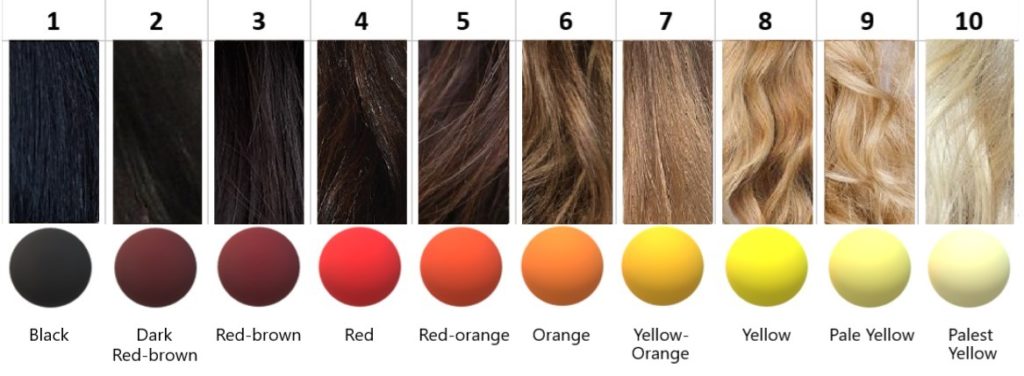
For example, if the hair is lifted from a level 4 to a level 8, all red and orange underlying pigment is removed, and we are left with yellow.
Now imagine that we want to reverse the process and perform a tint back to bring that level 8 hair to a level 4. We must add back that missing pigment in order to create the most balanced result.
Using the above scenario, let’s suppose the client would like a neutral–cool toned level 4 result. What would happen if you simply applied a blue-based level 4 onto the pre-lightened yellow hair?
Think back to the colour wheel: Blue + Yellow = Green… Not a very attractive result!
So how do we formulate our filler?
Generally, we want to fill to two levels lighter than our target end result. Consider the examples below:
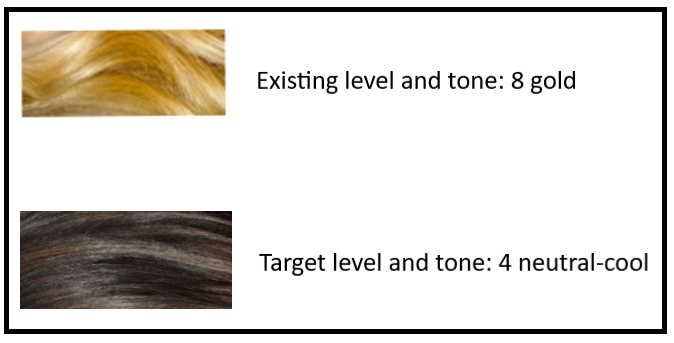
If the hair is filled to 2 levels lighter than the target of level 4, you will need to add back the underlying pigment at a level 6, which is orange. Let’s say for this scenario that you decide to use a semi-permanent filler, for example a level 6 copper. You will apply this filler to the pre-lightened hair, process fully, then remove.
So now, after the filler process, you have a level 6 copper/orange:
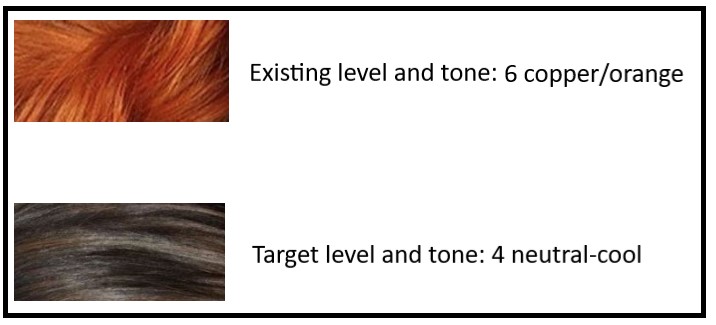
If you refer back to the colour wheel, you see that orange and blue are complimentary colours. Therefore, you can now apply a level 4 ash colour to create a neutral-cool result!
Will you always need to neutralize your filler tone? Generally a neutral or natural-warm result will not require neutralization, but a cool tone will.
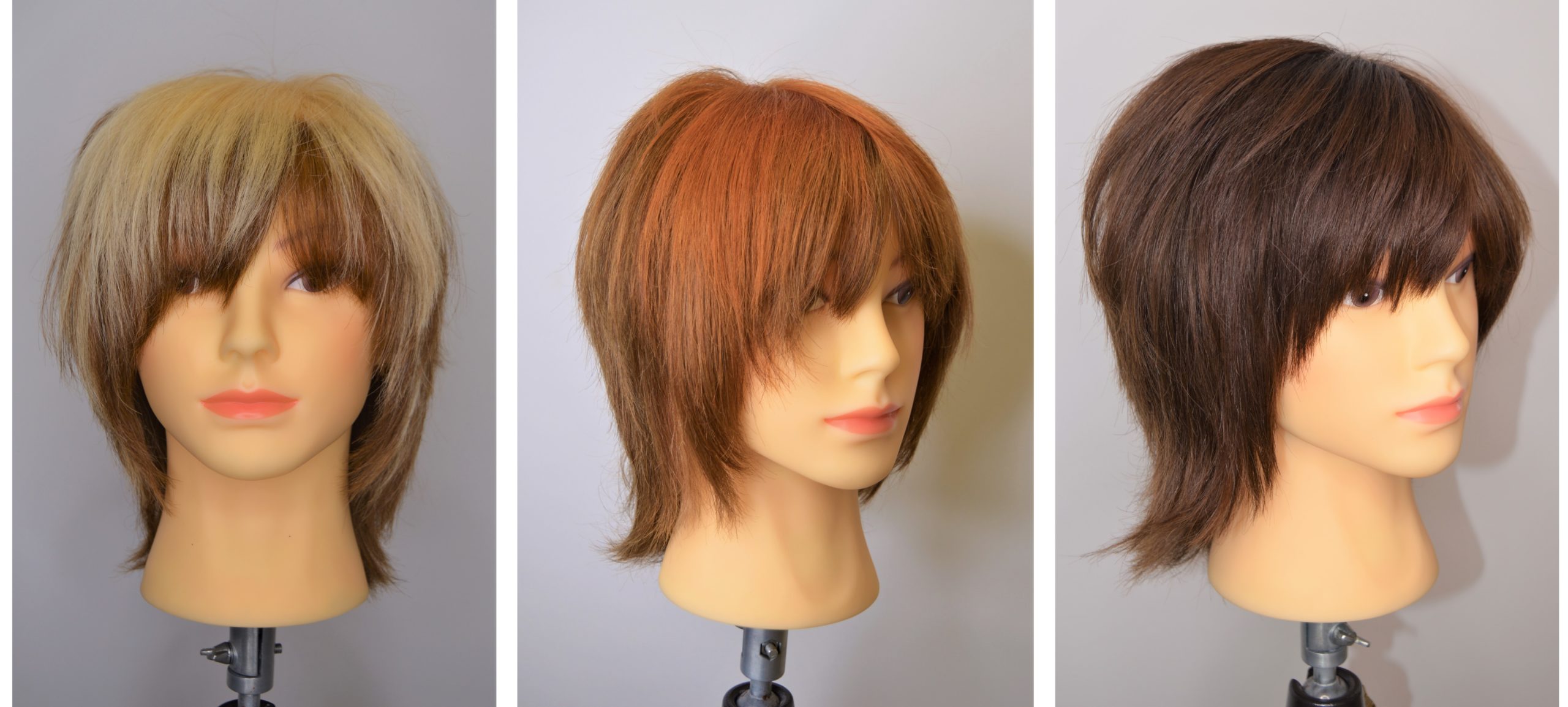
As mentioned above, a filler is also helpful when a client wants to go darker, but has pre-lightened hair that is over-toned and has a muddy blue/purple cast to their blonde hair. In this case, the filler also acts as a correcting tone.
For example:
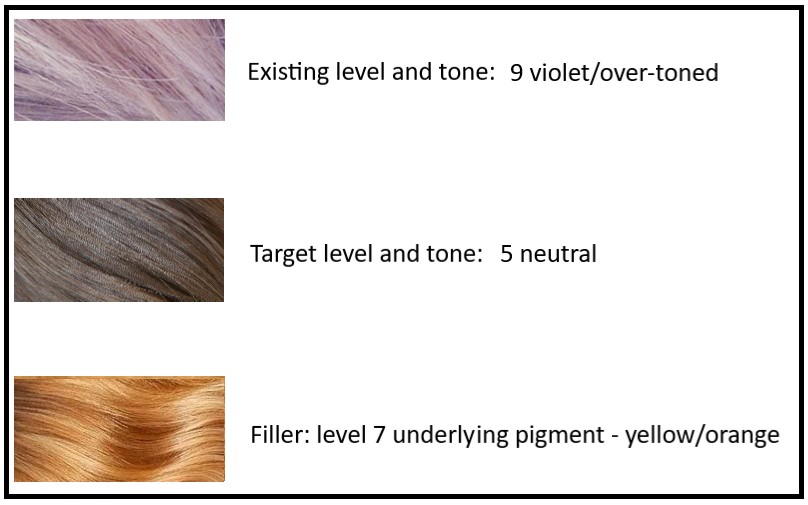
In this case, the filler tones would neutralize the unwanted violet tones in the pre-lightened hair, allowing us to apply the level 5 final formula over an already neutral base.
To review:
- Assess existing level and tone.
- Determine target level and tone.
- Fill with the underlying pigment 2 levels lighter than your target level.
- The choice of filler (fluid, non-oxidative, or oxidative) will depend on hair texture and porosity considerations (refer back to Chapter 2.2 Hair and Scalp Assessment).
- A neutral or warm target colour generally will not require the filler to be neutralized with the final colour formula, but a cool target colour will.
Media Attributions
- All images in this chapter are by A. Magtiza and are under a CC BY 4.0 Licence.
The hair's ability to absorb moisture or chemicals.
Any pigments that are exposed as hair is lightened through the 10 levels of lift.
Pigment that resides in the hair's cortex which gives hair its hue.
The second layer of a hair strand, which provides hair with its strength and elasticity.
Colours that reflect red, orange, or yellow.
Colour that does not predominantly reflect a warm or cool tone.
Colours that reflect blue, violet, or green.
To counteract or drab the intensity or hue of a colour.

